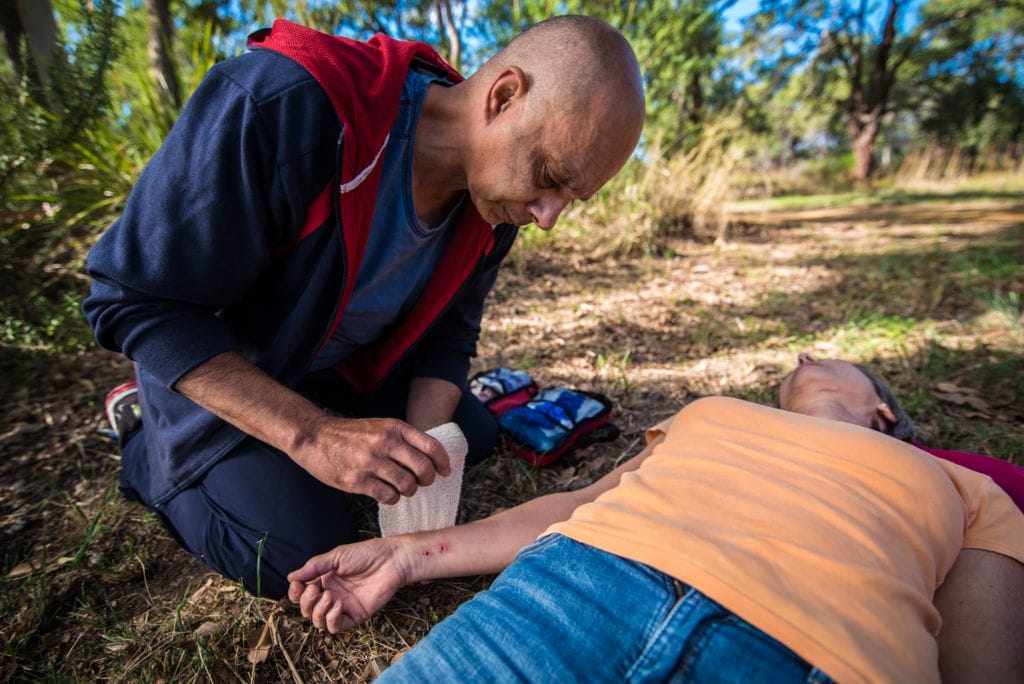Snake bite emergencies sparks lifesaving message
A surge in the number of Western Australians treated for snake bites in the last year has prompted an urgent message from St John WA on the importance of first aid as we head towards peak snake season.
From July 2018 to June 2019, 169 people were treated by paramedics for snake bites. By comparison, 104 people were treated in the 12 months to June 2018, and 120 in 2016.
The state’s paramedics were busiest during summer, with January recording the largest number of snake bite patients (25). October was the next highest month (21) as temperatures rose and snakes became more active.
More than 66 per cent of cases occurred in country WA, with the Wheatbelt (31), South West (29) and Pilbara (15) topping the list. Margaret River had the highest single number of emergency calls with seven, while 57 patients were treated in and around Perth, most in the South West (14) and North West (13) metropolitan areas.
With a return to warmer weather imminent, St John WA first aid general manager, Aaron Harding, urged all Western Australians to learn appropriate snake bite first aid.
“In the past 12 months we’ve seen a marked increase in snake bite emergency calls to the point where paramedics likely treated more people last year than any other period on record,” Mr Harding said.
“Five of the world’s 10 most venomous snakes live in Australia and unfortunately there are still many myths surrounding snake bite treatment. Our message is simple, but could be lifesaving – know first aid, even it’s at a fairly basic level.
“Obviously the first and most important thing if you’re bitten by a snake is to call triple zero (000), even if you’re unsure of the snake type. People should lie flat, remain as calm and still as possible, and then bandage the bite starting from the fingers or toes and wrapping upwards.”
Common snake bite symptoms include headaches, blurred vision, nausea, drowsiness and difficulty breathing, speaking or swallowing.
St John’s message comes after the tragic death of a man who was bitten by a snake while bushwalking in Kelmscott in March. The man phoned triple zero (000) but was unable to provide his location, making it impossible for paramedics and police to find him.
Mr Harding urged people to download the St John First Responder smartphone application which can dial triple zero (000) and provide operators with an exact GPS location.
“If you’re ever in an emergency situation in an unfamiliar area, the First Responder app is an incredibly important resource to have,” he said.
“If you’re connected to a mobile network, the app can dial triple zero (000) and give the emergency call taker your exact location. If you’re in a remote location with no phone reception, the app will still display GPS coordinates which can be verbally relayed to the emergency operator.
“It means paramedics can locate you faster, begin treatment sooner, and ultimately help deliver the best possible outcome.
“It’s also important that if you are going walking in bush areas, make sure you take a first aid kit with you.”
While snake bites are increasing, St John recorded a drop in the number of emergency calls for spider bites, down from 184 in financial year 18 to 129 in financial year 19.

